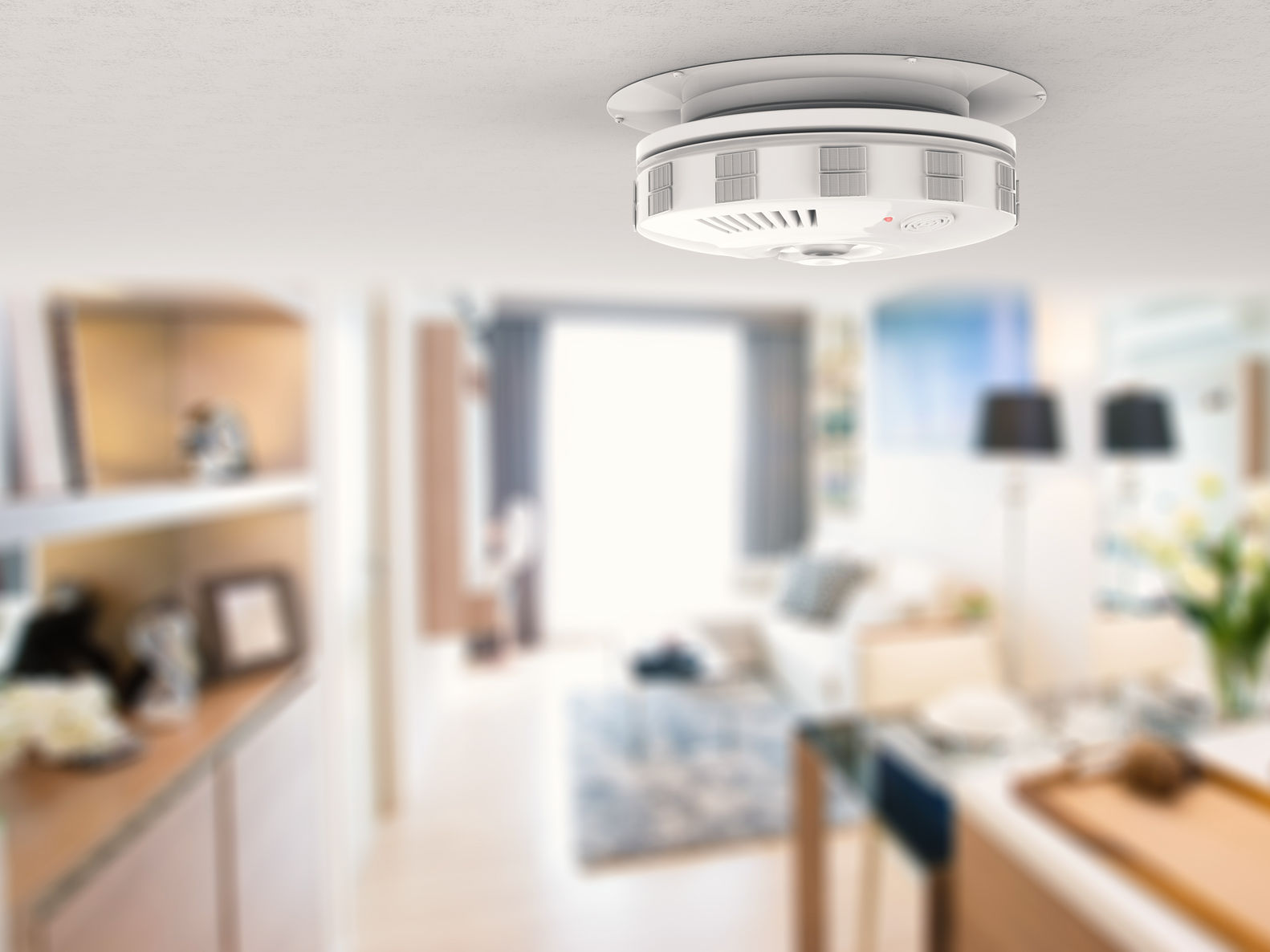What Can Accidentally Set Off A Fire Sprinkler System?
You may be under the false impression that installing a fire suppression sprinkler system is to choose water damage over fire damage. However, the fact is that sprinklers are not set off by smoke and, unlike in the movies, the sprinkler heads don’t trigger all at once. If these myths were true, you would be in danger of soaking all your possessions and company’s assets just by burning a piece of toast in the break room.
How Fire Sprinkler Systems Work
Each individual sprinkler head is triggered automatically when the air rising to the ceiling reaches a fire-specific temperature of 155 to 165 degrees. Often, only one or two sprinklers are required to fully extinguish a building fire. Since sprinklers use only about one-sixth of the water from a fire hose, they cause much less water damage to your property than a visit from the fire department would.
It’s true that early fire suppression sprinklers were unreliable and caused significant water damage when set off, but today’s sprinklers are more advanced. Still, accidental discharge is still possible. Aside from deliberate sabotage, consider the most common reasons sprinkler heads go off when they’re not intended to:
Accidental Overheating
Sprinklers located near heaters, skylights, and other areas of high heat can cause the fire sprinkler heads to discharge by accident. To prevent this, high-temperature-rated sprinklers are required. These activate at 200 to 300 degrees. If new heat sources are added to an existing building, the sprinklers should consequently be adjusted.
Freezing
Most sprinkler systems are wet pipe systems, meaning the pipes are full of water. If the pipes freeze, the expanding ice produces thousands of pounds of pressure, sometimes enough to break fittings and force valve caps open. When the system thaws, water may discharge from the sprinkler. As a preventative measure, special types of systems can be installed in areas subject to freezing.
Mechanical Damage
Forceful installation can damage a sprinkler’s operating mechanism, potentially causing the parts to come loose weeks or months later. To prevent this, a knowledgeable professional using the proper tools should perform the installation and regular inspection.
Corrosion
Very old sprinklers or systems installed in harsh environments are subject to corrosion, which weakens system parts and releases water. Regular inspection and testing can catch corrosion early and prevent unintentional discharge.
CAN CIGARETTE SMOKE TRIGGER A FIRE ALARM?
The short answer is yes, it can. Modern smoke detectors are more sensitive than older models because smoking indoors is prohibited in most public buildings today. Since cigarette smoke no longer swirls in the hallways, today’s detectors are designed with greater sensitivity so they can sense a developing fire as fast as possible.
However, while it’s possible to set off a fire alarm by smoking, reports of such incidents are rare. After all, the smoke from a single cigarette is minimal and dissipates into the air quickly.
That being said, it’s highly recommended that you only smoke outdoors. According to the National Fire Protection Association, smoking materials—including cigarettes, cigars, and pipes—ignited an estimated 17,200 homes in 2014. These fires resulted in 570 deaths, 1,140 injuries, and $426 million in property damage. When you smoke outdoors, there isn’t a chance of accidentally igniting your bedding or carpet, and you can safely wet the butts and dispose of them in an outside garbage can.
WHAT ABOUT E-CIGARETTES AND VAPORIZERS?
Unlike conventional cigarettes, these battery-powered versions create vapor as a byproduct, not smoke. Despite this, they can still set off a fire alarm if you blow vapor directly into it.
All smoke alarms are sensitive to small, airborne particles. Ionization smoke alarms trigger when particles disrupt the electricity traveling between two charged plates. Optical smoke alarms go off when particles scatter a beam of infrared light onto a light detector.
In this way, vapor and smoke have a similar effect on fire alarms. It’s the reason why smoke detectors shouldn’t be installed in bathrooms where steam from a hot shower could cause a false alarm. However, just like smoking, vaping is unlikely to trigger a fire alarm if only one or two vaporizers are in use and you don’t aim directly at a smoke detector.
Fire Sprinkler Monitoring & Inspections
Fire sprinkler monitoring and inspections from a fire protection technician can help insure your system is working as it should. With fire sprinkler monitoring and regular inspection, your panel will also alert us if there is a technical glitch or malfunction with your system—this wouldn’t constitute emergency response from the fire department, but our technicians will be able to repair your system as quickly as possible so that your building, employees, and assets are always protected.
To learn more about these services, please contact Kauffman Co., your Houston-area fire suppression experts.
















